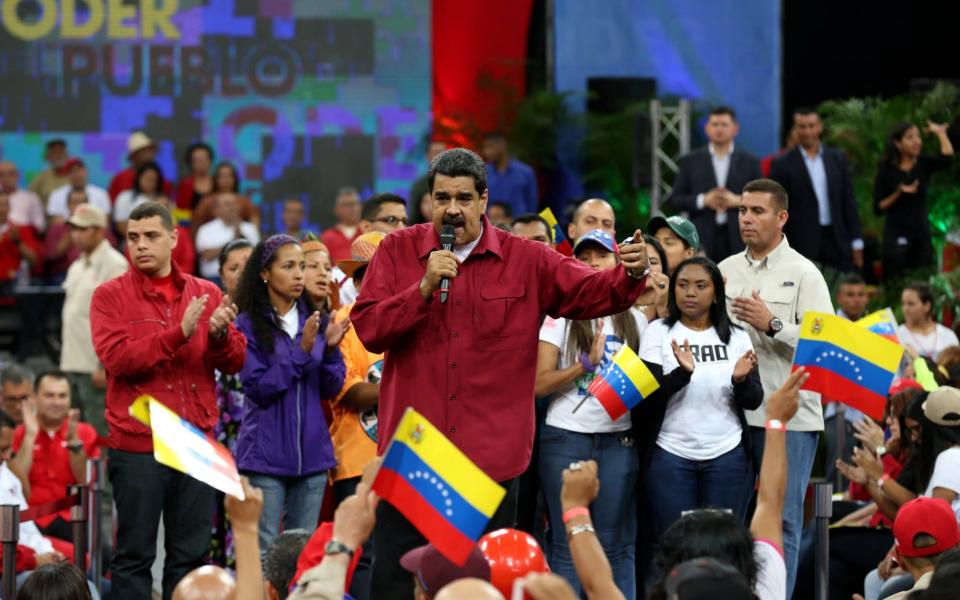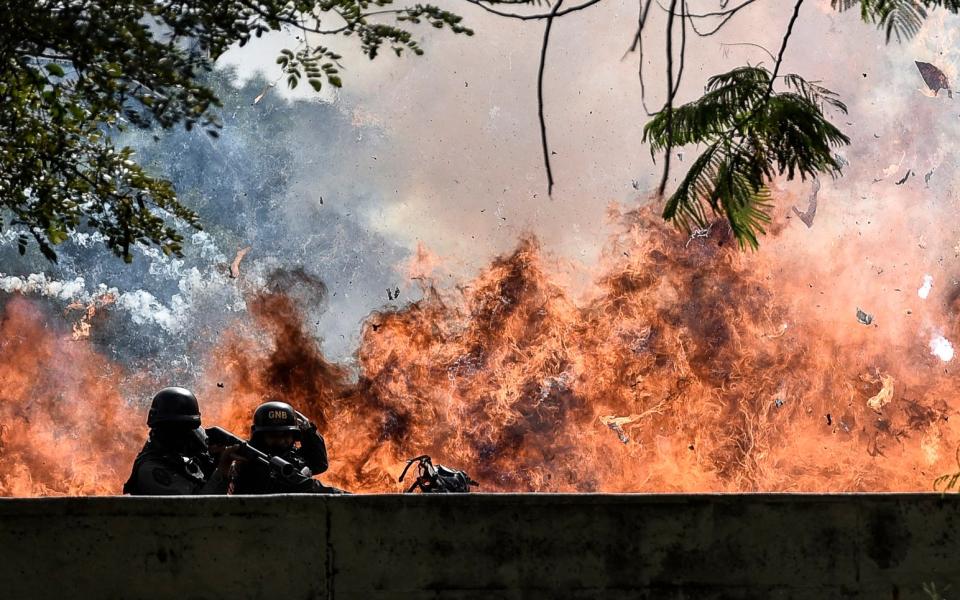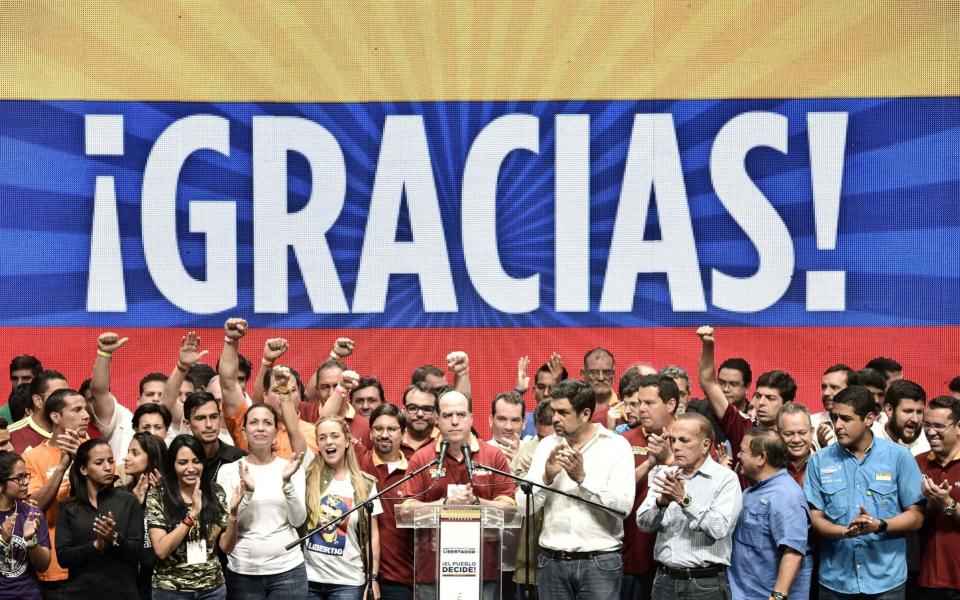US warns Venezuela that 'no option is off the table' if it goes ahead with vote for new assembly

The White House has threatened Venezuela with “strong and swift” action unless President Nicolas Maduro calls off a July 30 “constitutional congress”, which the US believes will push the South American country further towards a dictatorship.
Mr Maduro, who has now faced more than 100 days of protests, killing around 100 people, insists that the congress to rewrite the constitution is the only way to restore calm to the troubled country – which has the largest oil reserves in the world, and was once a stable, middle class nation.
But his opponents say that the congress will cement his "dictatorship".
In brief | Venezuela
On Tuesday a senior White House official said that “all options are on the table” if Venezuela goes ahead with the vote.
“The president is very concerned about the well being of the Venezuelan people, the incredible erosion of democracy right before our eyes,” the official said.
“And he has instructed us to do everything we can to support democracy there.”
The Trump administration was preparing sanctions against Diosdado Cabello, Mr Maduro’s second in command, and Vladimir Padrino Lopez, the defence minister, Reuters reported.

The sanctions would freeze the officials' US assets and prohibit anyone in the United States from doing business with them.
Mr Cabello responded on Twitter with an 1826 quote from Simon Bolivar, the independence hero idolised by Hugo Chavez and his allies.
Nuestro Libertador vigente hoy: "Los EEUU parecen destinados por la providencia, a plagar la América de miserias en nombre de la libertad"
— Diosdado Cabello R (@dcabellor) July 18, 2017
He tweeted: “Our liberator is watching over us today: ‘The United States seems destined by providence to plague America with misery in the name of liberty.’”
He then re-tweeted a message of support from Evo Morales, president of Bolivia, who described the threat as “shameful”.
There was also a suggestion that the US could be preparing sanctions against PDVSA, the state oil company.
Venezuela is the third largest foreign oil supplier to the United States, after Canada and Saudi Arabia, exporting about 780,000 barrels per day of crude.
While sanctions against the PDVSA could bankrupt the Maduro administration and worsen already grave food shortages, hitting Venezuela's energy sector could also raise US domestic fuel prices, which would be unpopular with Americans.
The White House would not confirm who or what would be sanctioned, but only promised “strong and swift economic actions”.
“The president views Venezuela as a disaster, and a man-made disaster,” the official said, in a briefing call with journalists.
“It used to be a middle income country and has been destroyed by corruption, narco-trafficking and mismanagement. The president is very troubled by this, and by the suffering of the Venezuelan people, and he wants it to become the democracy that the Venezuelan people want it to be.”

The Venezuelan embassy in Washington issued a furious response to what it termed "open aggression against a Latin American country."
"Without a doubt, the government of the United States is used to humiliating other nations in its international relations and believes that it will receive as a response the subordination to which they are accustomed," the embassy said in a statement.
"The thin democratic veil of the Venezuelan opposition has fallen, and it reveals the brutal interventionist force of the US government, which has been behind the violence suffered by the Venezuelan people in the last four months.
"It is not the first time that we denounce and confront threats as ludicrous as those contained in this unbelievable document."
Mr Maduro’s government vowed to proceed with the vote, hitting out at what it called a "brutal interventionist" threat from its ideological foe in the north.
"Venezuelans are free and will unite against the insolent threat from a xenophobic and racist government," said Samuel Moncada, the foreign minister, on Tuesday.
He said the elections for the Constituent Assembly was “an act of political sovereignty by the republic.”
“Nothing and nobody can stop it," he added.
Polls show a majority of Venezuelans oppose the Constituent Assembly, which critics say would be elected in a sham poll.

Mr Maduro's opponents say they drew 7.5 million people onto the streets at the weekend to vote in a symbolic referendum, where 98 per cent disagreed with the assembly plan.
Calls to cancel the assembly and instead hold conventional elections have come from around the world, including the European Union and major Latin American nations.
The ruling Socialist Party would likely be thrashed in any normal vote due to widespread anger over economic hardships.
"The Constituent Assembly should be abandoned to achieve a negotiated, safe and peaceful solution in Venezuela. The whole world is asking for that," Colombia's President Juan Manuel Santos tweeted.
Protesters blocked roads in parts of Caracas on Tuesday, and a national strike was planned for Thursday.

